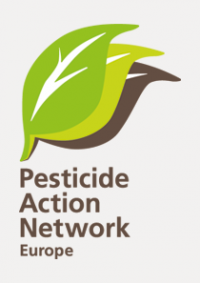The worrying rise of TFA in cereal products
48 cereal products purchased in Austria (including bread, pasta, breakfast cereals, cornflakes, and flour sourced equally from organic and conventional farming) were analysed for the per- and polyfluoroalkyl substance (PFAS) trifluoroacetic acid (TFA). TFA is an extremely stable end product of the degradation of PFAS pesticides used in agriculture, and of fluorinated gases (F-gases) from refrigeration technology. This ‘forever chemical’ exhibits reprotoxic properties, does not degrade in nature, and accumulates in the global water cycle and living organisms. The concentrations of TFA measured in the cereal products are unexpectedly high and already exceed health-relevant guideline values.
Key Findings:
- All 48 analysed cereal products contained TFA. Concentrations measured ranged from 13 µg/kg (organically grown rye) to 420 µg/kg (conventional butter biscuits). This is two to three orders of magnitude higher than the already considerable current TFA levels found in rainwater, groundwater, and drinking water.
- Organic cereal products also showed significant TFA concentrations (median: 47 µg/kg), even when produced on land that had never been treated with pesticides. This underlines TFA’s wide distribution and high mobility in the environment. For conventional products, the median concentration was 3.5 times higher (median: 165 µg/kg).
- Comparison with the only official study on TFA in cereal grain to date (2016/2017, commissioned by the European Commission) shows a threefold increase in the contamination levels of cereal products in less than a decade.
Similar steep increases in TFA concentrations have already been observed in various other environmental media and plant-based products, most recently in wine, prompting leading environmental scientists to identify TFA as a “planetary boundary threat”.
The health risks of TFA have so far been insufficiently researched. For decades, TFA was portrayed by the PFAS industry as relatively harmless to both the environment and human health. However, with the recognition of its reprotoxic properties, regulatory authorities have begun to take a different view. Recent risk assessments from the Netherlands and Belgium estimate the tolerable daily intake of TFA for humans to be significantly lower than what previous evaluations have suggested. Based on these newer assessments, the TFA concentrations found in cereals already exceed the tolerable daily dose for children by a factor of four. Meanwhile, the exposure levels continue to rise. This calls for swift and decisive action to curb TFA emissions and their associated risks.
GLOBAL 2000, PAN Europe and the Upper Austrian Chamber of Labour (Arbeiterkammer Oberösterreich), therefore, call on the responsible political decision-makers at both national and European levels to take immediate action to protect human health and the environment by:
- Banning PFAS pesticides as the primary source of TFA contamination in rural areas.
- Phasing out TFA precursors, such as F-gases, through the planned EU-wide PFAS ban.
- Introducing and monitoring effective health-based guidelines and limit values for TFA in food and water.
